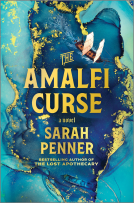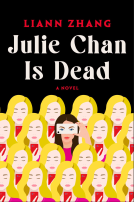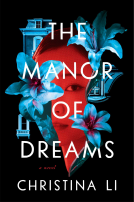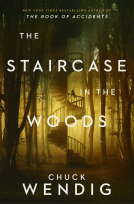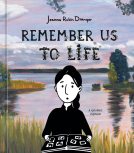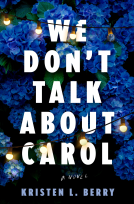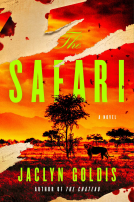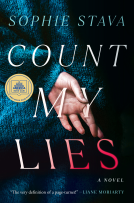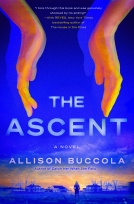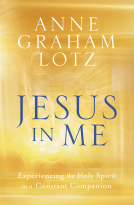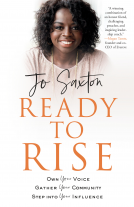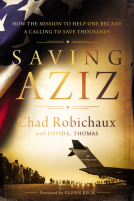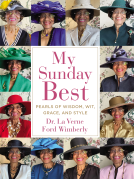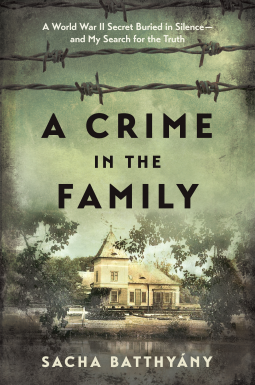
A Crime in the Family
A World War II Secret Buried in Silence--and My Search for the Truth
by Sacha Batthyany
This title was previously available on NetGalley and is now archived.
Send NetGalley books directly to your Kindle or Kindle app
1
To read on a Kindle or Kindle app, please add kindle@netgalley.com as an approved email address to receive files in your Amazon account. Click here for step-by-step instructions.
2
Also find your Kindle email address within your Amazon account, and enter it here.
Pub Date Oct 10 2017 | Archive Date Oct 02 2017
Perseus Books, Da Capo Press | Grand Central Publishing
Description
One night in March of 1945, on the Austrian-Hungarian border, a local countess hosted a party in her mansion, where guests and local Nazi leaders mingled. The war was almost over and the German aristocrats and SS officers dancing and drinking knew it was lost. Around midnight, some of the guests were asked to "take care" of 180 Jewish enslaved laborers at the train station; they made them strip naked and shot them all before returning to the bright lights of the party. It was another one of the war's countless atrocities buried in secrecy for decades--until Sacha Batthyany started investigating what happened that night at the party his great aunt hosted.
A Crime in the Family is the author's memoir of confronting his family's past, the questions he raised and the answers he found that took him far beyond his great aunt's party: through the dark past of Nazi Germany to the gulags of Siberia, the bleak streets of Cold War Budapest, and to Argentina, where he finds an Auschwitz survivor whose past intersects with his family's. It is the story of executioners and victims, villains and heroes.
Told partly through the surviving family journals, A Crime in the Family is a disquieting and moving memoir, a powerful true story told by an extraordinary writer confronting the dark past of his family--and humanity.
Available Editions
| EDITION | Other Format |
| ISBN | 9780306825828 |
| PRICE | $28.00 (USD) |
| PAGES | 224 |
Featured Reviews
I was SO excited to get a review copy of this book – I read an interview with the author about a week before I was approved for the book and was fascinated. We’ve all read memoirs from Holocaust survivors, some even from their children documenting their parents’ stories.
But what about the third generation? The ones whose grandparents and great-grandparents survived the chaos of WW2 Europe and its aftermath? How does the past affect them? That is exactly what this book explores, and it’s really insightful.
Sacha Batthyany is a Swiss journalist of Hungarian descent who grew up with parents who mourned for the “old Hungary,” and being told stories of his grandfather, who survived 10 years in a Soviet gulag following WW2 (as a Hungarian/Axis soldier, he was taken as a POW by the Soviet regime). One day, Sacha is shown an article by a colleague which claims his great aunt not only hosted an elaborate party in the waning days of the war, but took her guests out during the festivities to shoot 180 Jewish slave laborers who were working nearby. Shocked, Sacha begins a search for the truth about his family’s history and finds out that history may affect the present more than we think.
The crime mentioned in the description actually doesn’t take center stage for the whole novel – Batthyanny focuses more on his grandparents’ stories as the book goes on. But all of the events of his family’s past really come together in a really revealing way which explores the connections between truth and as it’s known, “the banality of evil.” The books themes of facing the truth and what makes someone “good” or “bad” are really intensely explored as Batthyany has to face his family’s actions or inactions and what that means for him.
As in most stories, there’s a lot of gray areas as more and more is revealed.
I think we’ll be seeing a lot more of these “third generation” novels, and if they’re as good as this one, it’s an exciting prospect.
Highly recommended for anyone who is interested in history and its legacy.
 Melissa R, Reviewer
Melissa R, Reviewer
I am very fascinated with ww2 era I was very excited to receive this book and I was not let down the cover is fantastic and mysterious, the book is well written, and the pieces of the puzzle as to what happened the night at his aunts home and what role she played with the deaths of so many Jews is enormous! you can feel the authors frustration to unlock so many unanswered questions if you like emotional, to the point, ww2 memoirs than this is definitely the book for you the only reason this book didn't make 5 stars from me was the slow up and down start at the beginning of the book but after getting through that I couldn't put it down!
 Michelle K, Reviewer
Michelle K, Reviewer
A Crime in the Family
A World War II Secret Buried in Silence--and My Search for the Truth
by Sacha Batthyany
Perseus Books, Da Capo Press
Da Capo Press
Biographies & Memoirs , History
Pub Date 10 Oct 2017
I am reviewing a copy of A Crime in the Family through Da Capo Press and Netgalley:
We are introduced to Agnes who was ninety during the prologue but was eighteen when she was deported to the concentration camp. She survived Aushwitz .
In the Spring of 1945 on the Austrian-Hungarian not far from the front lines of the fast approaching red army Countess Margit Battyany gives a party in her mansion. The war was almost over and the SS officers and German aristocrats drinking were well aware that they were going to loose. Later that night the Nazis at the party walked down to the village wheee 180 Jewish laborers were enslaved, they made them strip down and shot them all.
Saccha Batthyany pens a powerful memoir about the events and the vague memories of his Aunt Margarit. This book deals with not only the horrors of Aushwitz, but also the Chas of wartime Budapest and the brutalities of the soviet occupation. It tells stories of corruption and cover-up partly through surviving journals of others in the author's family.
I give A Crime in the Family five out of five stars!
Happy Reading!
 Reviewer 201788
Reviewer 201788
Swiss journalist Sacha Batthyany uncovers an intriguing, disturbing rumor: near the end of the Second World War, his Aunt Margit was alleged to have participated in the massacre of hundreds of Jewish prisoners in the small Austrian town of Rechnitz. The crime took place during a party at her home attended by Nazi officers.
He's haunted and determined to track down the source of the story and see if there's any truth to it. He remembers Margit somewhat from his childhood, after his parents immigrated from their native Hungary to Switzerland, and they visited with her sometimes.
Most importantly, he sees the discovery of the truth about the roots of his family tree, and learning what skeletons are hidden in their closets, as crucial to understanding more about himself. his identity and where he came from.
He tell his psychoanalyst, "I want to know what's still left in my bones from earlier times. I'd like to find out what influence past events have in making us what we are."
So begins his journey across Europe and eventually to South America, tracking the original mystery of the crime, then becoming distracted by a second revelatory incident, as well as pursuing hard facts about his grandfather's Siberian Gulag imprisonment. He's aided by his grandmother's handwritten memoirs, passed along by his father.
The travel narratives and exploration of the family history and crimes are interspersed with his psychoanalytic sessions, as well as some journal excerpts from a Jewish family connected to his own, and some imagined scenes and conversations where he exercises some creative license in assuming what took place to fill in historical gaps.
While reading, I was reminded of a review I read of the movie "Adaptation" that always stuck with me: the movie was based on journalist Susan Orlean's excellent nonfiction book The Orchid Thief, and if you've seen it, you know that it's not at all a straight adaption of Orlean's story, rather a meta story of screenwriter Charlie Kaufman trying to adapt the book. The review said that Kaufman read The Orchid Thief and found that the most interesting thing in it was Charlie Kaufman. (I'm heavily paraphrasing and can't find the review, but I have a point.)
The most interesting part of every story this author tells is himself. After the trip to Russia with his father, with whom Sacha has a strained, complicated relationship described through their conversations and his psychoanalytic sessions, he reflects:
"I had travelled to Siberia to understand that I was no match for international history, for all those wars that haunted his mind...Stalin, I whispered to myself, first robbed all your family of its land, then locked your grandfather up, and after that took your father away from you."
It makes the story more complicated - it's not straight history or memoir, it's like a psychological concept project across genres.
I disliked the imagined conversations - a popular method for filling in details in the narrative, I know, but one I can't stand nevertheless. To some extent, if it's done well enough, it can help flesh out a story that's missing something, but here it went too far into fictional territory. If stories are missing, like pieces of this one are, it seems better to build connected stories around them. He does this somewhat - traveling to South America to meet the one survivor connected to his family's wartime life and share what he's uncovered with her and her family.
This book reminded me of another upcoming release, Maybe Esther, about someone tracing family roots during the Second World War and the Holocaust, also translated from German. I speak German and do some translation into English, but I don't actually read books written in German. So I don't know if this is something characteristic of the literary writing style, but it's this very disjointed, all-over-the-place structure that I find difficult to follow and fully comprehend.
Now for the good, the really good actually, and why we need stories like this - especially this one with its particular angle shining a big spotlight on what Austria is doing wrong.
There, in the Burgenland province where the massacre of Jewish prisoners took place, he met with distant relatives, trying to glean what they knew about Margit's involvement. Snippets of the conversation from these Austrian relations:
"What's the point of it all?"
"Why bother?"
"What's it to do with us?"
"There's been enough written already about crimes against the Jews...The crimes of the communists were just as bad."
Later, an uncle tells him, "Do think about the family's good name. You don't want to drag it through the mud."
The original German title, And was hat das mit mir zu tun?, translates to "And what does that have to do with me?" It's an oft-repeated phrase among Austrians, in my experience at least. When I taught business English, around one anniversary of the liberation of Auschwitz, a woman in one of my courses discussing this news item said, disgustedly, "I can't wait until we don't have to hear about this anymore. Soon there won't be anyone else alive from that time and we can stop talking about. It doesn't have anything to do with us but we always have to hear it." I was in such shock I don't remember how I responded.
Hers is only one such example, another was near verbatim to the above quote about the crimes of the Russians occupying Austria being as bad if not worse than those of the Nazis. That same person also said that Jewish people in Austria get too many benefits and too much money in the form of reparations, and the time of Austria's crimes is long over and they've already gotten so much and don't deserve anything more. Maybe you can see why I had to get away from work that involved so much listening to of Austrians' opinions.
I had to wonder if the German title was changed, not only because that sentence is a bit clunky as a title in English, but because its refrain is well-known if angrily denied or defended in the German-speaking countries, but wouldn't be believed elsewhere. Maybe I'm reading too much into it because this issue always gets me, but I wonder.
That's why this is an important book, if some stylistic and narrative elements were off for me. It's still true, still a personal account of what exists of a disturbing history, and it's something that needs sharing. Austria has come very close within the last year to electing leaders from the far-right party built from remnants of the Nazi party. The Freheitspartei Österreich has made increasingly stronger showings in elections. Germany, in its elections in September, saw the far-right AfD party make history by becoming the first openly nationalistic party to hold seats in the Bundestag in 60 years.
Like Faulkner said: The past is never dead. It isn't even past.
A messily structured, sometimes great, deeply compelling, and contemporarily important other times frustratingly navel-gazing look at a family's complicated wartime and postwar history, and how it all feels in the present.
Readers who liked this book also liked:
Joanna Rubin Dranger
Biographies & Memoirs, Comics, Graphic Novels, Manga, History
Kristen L. Berry
Multicultural Interest, Mystery & Thrillers, Women's Fiction

